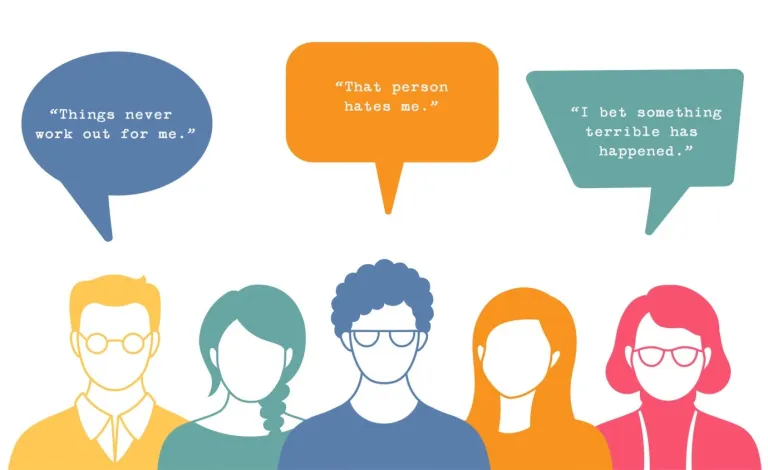Cognitive distortions are habitual patterns of thinking that are irrational and negatively biased, distorting our perceptions of ourselves, others, and the world. These distortions can lead to heightened stress, anxiety, and depression, impacting our overall mental well-being. Recognizing and challenging these distortions is crucial for maintaining psychological health and promoting positive thought patterns.
- All-or-Nothing Thinking (Black-and-White Thinking): This distortion involves viewing situations in extreme terms, with no middle ground. For example, someone might believe that if they’re not the best at something, they’re a total failure. This type of thinking overlooks the complexities of life and can lead to feelings of inadequacy and self-doubt.
- Catastrophizing: This distortion involves expecting the worst possible outcome in any situation, regardless of the evidence. For instance, someone might catastrophize a minor setback, believing it will have catastrophic consequences for their future. This type of thinking magnifies problems out of proportion and can lead to unnecessary anxiety and distress.
- Mind Reading: This distortion involves assuming we know what others are thinking or feeling, often jumping to negative conclusions. For example, someone might assume that a friend is angry with them without any evidence to support this belief. This type of thinking can strain relationships and lead to unnecessary conflict.
- Filtering (Selective Attention): This distortion involves focusing exclusively on negative aspects of a situation while ignoring any positive elements. For instance, someone might receive numerous compliments on their work but choose to focus only on one critical comment. This type of thinking can reinforce negative self-perceptions and undermine self-esteem.
- Overgeneralization: This distortion involves drawing broad conclusions based on limited evidence, usually from a single negative experience. For example, someone might believe that they’ll never succeed in relationships after one breakup. This type of thinking overlooks the possibility of positive outcomes and can lead to feelings of hopelessness and despair.
- Personalization: This distortion involves taking responsibility for events outside of our control, attributing negative outcomes to ourselves without considering other factors. For example, someone might blame themselves for a friend’s bad mood, assuming they caused it. This type of thinking can lead to excessive guilt and self-blame.
- Labeling: This distortion involves applying negative labels to ourselves or others based on behavior or characteristics. For example, someone might label themselves as a “failure” for making a mistake at work. This type of thinking oversimplifies complex situations and can reinforce negative self-identity.
- Should Statements: This distortion involves imposing rigid rules or standards on ourselves or others, leading to feelings of guilt or inadequacy when these standards aren’t met. For example, someone might believe they “should” always be productive, leading to burnout and self-criticism when they take time for rest. This type of thinking can create unnecessary pressure and hinder self-compassion.
By becoming aware of these cognitive distortions and challenging them with more balanced and realistic thoughts, individuals can cultivate greater emotional resilience and well-being. Seeking support from mental health professionals, such as cognitive-behavioral therapy (CBT), can also be instrumental in addressing these distortions and promoting healthier thought patterns.



